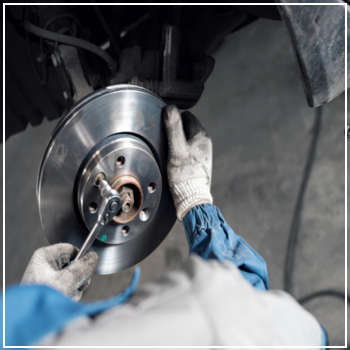How Often Does Your Vehicle Need Brake Maintenance?
 If you hear a whistling or screeching noise when you press the brake pedal, it's usually a sign that your brake pads are worn down and may need replacement. Ignoring these sounds can lead to more serious issues, such as damage to the calipers, rotors, and even the brake system itself. So, what should you do next?
If you hear a whistling or screeching noise when you press the brake pedal, it's usually a sign that your brake pads are worn down and may need replacement. Ignoring these sounds can lead to more serious issues, such as damage to the calipers, rotors, and even the brake system itself. So, what should you do next?
Common Wear Factors
Several factors can accelerate brake wear, including:
- Driving style: Aggressive driving, rapid acceleration, and hard braking can put extra stress on your brakes. Smooth, gradual stops help extend the life of your brake components.
- City vs. highway driving: Frequent stops in heavy traffic increase brake usage. If you live in a hilly area, you’ll likely use your brakes more often than someone in a flat region.
- Brake pad material: Harder compounds, often found in performance vehicles, last longer but require heat to work effectively. Softer pads are better suited for city driving at lower speeds.
- Heat buildup: Excessive heat from repeated braking can cause the pad material to melt onto the rotor, reducing braking efficiency and potentially causing damage.
- Material quality: High-performance materials like carbon-ceramic brakes tend to last longer than standard steel or cast iron options.
When to Check Your Brakes
Unlike oil changes or tire rotations, there’s no set schedule for brake maintenance. However, it's a good idea to have them inspected during routine services—like when you get your oil changed or tires rotated. These typically occur every six months, making it an ideal time to check your brake system. On average, most drivers replace their brakes every 50,000 miles. But this can vary depending on driving conditions. In a busy city with lots of hills, you might need new brakes every 25,000 miles. If you drive mostly on open roads, you could go up to 70,000 miles before needing service.
Signs You Need Brake Repair
If you notice any of the following, it's time to bring your car in for a check-up:
- Squealing or screeching: This is often caused by worn brake pads. Many pads have a small metal tab that makes noise when they're low. If ignored, this can lead to more severe damage, like a vibrating steering wheel or a pulsating feel when braking.
- Vibrations or pulsing: This usually means your rotors are warped. A mechanic can either resurface them or replace them if necessary.
- Grinding noises: This is a serious sign that your brake pads have completely worn away, and the metal parts are now rubbing against the rotors.
- Brake warning light: If the light stays on longer than usual when you start the car, it could indicate low brake fluid, a leak, or a problem with the master cylinder.
Don’t wait until a problem becomes critical. Regular maintenance can prevent costly repairs and keep you safe on the road. At DaSilva’s Auto Body, we offer professional brake inspections, repairs, and fluid replacements at competitive rates. If you're in the Naugatuck area, give us a call today to schedule your appointment and keep your vehicle running smoothly.
European Shopping Carts,European Grocery Cart,European Shopping Trolley,Wanzl Trolley,Shopping Trolley
Suzhou Malltek Supply China Co.,Ltd. , https://www.oktrolley.com